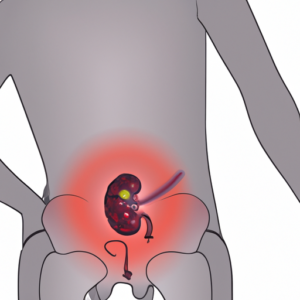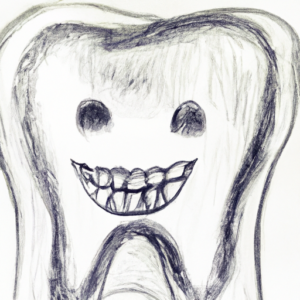Depression, a prevalent mental health condition, affects millions of individuals worldwide. Its impact can be debilitating, affecting not only the individuals experiencing it but also their loved ones. Understanding depression is crucial in order to provide effective treatment and support. This article aims to delve into the various aspects of depression, including its symptoms, causes, and diagnosis. Additionally, it will explore the wide range of treatment options available to those struggling with depression. Finally, the article will shed light on the importance of prevention strategies and how they can help individuals maintain good mental health. By addressing these key areas, we hope to offer valuable insights and guidance for both those affected by depression and those seeking to support them.
1. Understanding Depression: Symptoms, Causes, and Diagnosis
Depression is a complex mental health disorder that affects millions of people worldwide. Understanding the symptoms, causes, and diagnosis of depression is crucial for both individuals experiencing it and those around them. By shedding light on this topic, we can promote awareness, reduce stigma, and encourage timely intervention and treatment.
The symptoms of depression can vary from person to person, making it a challenging condition to diagnose accurately. However, some common signs include persistent feelings of sadness, hopelessness, and a loss of interest or pleasure in previously enjoyed activities. Other symptoms may include changes in appetite or weight, sleep disturbances, fatigue or lack of energy, difficulty concentrating, and even thoughts of self-harm or suicide.
While anyone can experience temporary feelings of sadness or low mood, depression is different. It is a persistent and overwhelming condition that can significantly affect an individual’s daily life, relationships, and overall well-being. It is essential to recognize that depression is not a sign of weakness or a character flaw but a legitimate medical condition that requires attention and treatment.
The causes of depression are multi-faceted and can vary from biological factors to life events and social circumstances. Research suggests that imbalances in brain chemicals, such as serotonin and norepinephrine, play a role in the development of depression. Additionally, a family history of depression, certain medical conditions, traumatic experiences, chronic stress, or substance abuse can increase the risk of developing depression.
Diagnosing depression involves a thorough evaluation of symptoms and a medical or psychiatric assessment. It is crucial to seek professional help from a qualified healthcare provider, such as a psychiatrist or psychologist, who specializes in mental health diagnoses. The healthcare provider will conduct a comprehensive evaluation, including a detailed interview and possibly the use of diagnostic tools such as questionnaires or scales. They will consider the intensity, duration, and impact of symptoms on various aspects of daily life before making a diagnosis.
It is important to understand that depression is a treatable condition, and seeking help is the first step towards recovery. The most common treatment approaches for depression include psychotherapy, medication, or a combination of both. Psychotherapy, such as cognitive-behavioral therapy (CBT) or interpersonal therapy (IPT), can help individuals learn coping strategies, challenge negative thought patterns, and develop healthier behaviors. Medications, such as antidepressants, may also be prescribed to help regulate brain chemicals and alleviate symptoms.
In addition to professional treatment, self-care practices can play a crucial role in managing depression. Engaging in regular physical activity, maintaining a balanced diet, getting enough sleep, and establishing a support system of family and friends can all contribute to overall well-being. It
2. Effective Treatment Options for Depression: A Comprehensive Overview
Depression is a complex mental health condition that affects millions of people worldwide. It is characterized by persistent feelings of sadness, loss of interest or pleasure, changes in appetite or sleep patterns, and a lack of energy or motivation. While the exact cause of depression is still not fully understood, a combination of genetic, environmental, and psychological factors is believed to contribute to its development.
When it comes to treating depression, there is no one-size-fits-all approach. Effective treatment options vary depending on the individual’s unique circumstances and the severity of their symptoms. It is crucial for healthcare professionals to conduct a thorough assessment to determine the most suitable treatment plan for each patient. Here, we provide a comprehensive overview of some of the most commonly used and effective treatment options for depression.
1. Psychotherapy:
Psychotherapy, also known as talk therapy, is a widely used treatment for depression. It involves working with a trained therapist to explore and address the underlying causes of depression. Different types of psychotherapy, such as cognitive-behavioral therapy (CBT), interpersonal therapy (IPT), and psychodynamic therapy, are effective in helping individuals develop coping mechanisms, improve their problem-solving skills, and gain a better understanding of their emotions. Psychotherapy can be conducted on an individual basis or in a group setting, depending on the preference and needs of the patient.
2. Medication:
Antidepressant medications are commonly prescribed to manage moderate to severe depression. Selective serotonin reuptake inhibitors (SSRIs) and serotonin-norepinephrine reuptake inhibitors (SNRIs) are the most commonly prescribed classes of antidepressants. These medications work by balancing certain chemicals in the brain, helping to alleviate symptoms of depression. It is important to note that medication should always be prescribed and monitored by a qualified healthcare professional, as they may have side effects and can interact with other medications.
3. Lifestyle changes:
In addition to therapy and medication, making certain lifestyle changes can significantly improve the symptoms of depression. Regular exercise has been shown to have positive effects on mood by boosting endorphin levels and reducing stress. Engaging in activities that bring joy and fulfillment, such as hobbies or spending time with loved ones, can also have a positive impact. Additionally, adopting a healthy diet, getting adequate sleep, and managing stress levels can contribute to overall well-being and help alleviate depressive symptoms.
4. Alternative therapies:
Complementary and alternative therapies can be used alongside traditional treatment options to enhance the effectiveness of depression treatment. Techniques such as acupuncture, yoga, meditation, and mindfulness-based stress reduction have shown promising results in reducing depressive symptoms and improving overall mental well-being. However
3. Shedding Light on Depression: Exploring the Impact and Strategies for Prevention
Depression is a debilitating mental health condition that affects millions of people worldwide. It can have a profound impact on an individual’s daily functioning, relationships, and overall quality of life. While effective treatments for depression exist, the importance of prevention cannot be overstated. By shedding light on depression and exploring strategies for prevention, we can work towards reducing the prevalence of this widespread mental health issue.
First and foremost, understanding the impact of depression is crucial. Depression is not simply a temporary feeling of sadness or low mood; it is a persistent mental health disorder that can significantly impair an individual’s ability to function. Symptoms of depression often include persistent feelings of sadness, loss of interest or pleasure in activities, changes in appetite and sleep patterns, low energy levels, difficulty concentrating, and even thoughts of self-harm or suicide. These symptoms can have a profound impact on one’s personal and professional life, leading to decreased productivity, strained relationships, and a diminished overall sense of well-being.
Given the severity of depression, it is essential to explore strategies for its prevention. While there is no foolproof method for completely preventing depression, there are several approaches that can significantly reduce the risk and mitigate its impact. One key strategy is early intervention. Identifying and addressing depressive symptoms as soon as they arise can prevent the condition from worsening. Regular mental health check-ups, especially for individuals with a family history of depression or other risk factors, can help detect early signs of the disorder and prompt timely intervention.
Another vital prevention strategy involves building resilience and coping skills. Resilience refers to an individual’s ability to bounce back from adversity and effectively manage stress. Developing resilience can act as a protective factor against depression. Encouraging healthy lifestyle choices, such as regular exercise, a balanced diet, and sufficient sleep, can contribute to greater resilience. Additionally, teaching individuals effective coping mechanisms, such as problem-solving skills, stress management techniques, and fostering social support networks, can help them navigate life’s challenges more effectively and reduce the risk of developing depression.
Furthermore, addressing the underlying causes and risk factors associated with depression is essential for prevention. Depression can stem from a combination of genetic, biological, environmental, and psychological factors. Identifying and addressing these factors can help reduce the likelihood of developing depression. For instance, providing support and education to individuals with a family history of depression, addressing traumatic experiences through therapy, and promoting healthy social connections can all contribute to prevention efforts.
Lastly, it is crucial to promote mental health awareness and reduce the stigma surrounding depression. Many individuals still hesitate to seek help or discuss their struggles due to fear of judgment or discrimination. By fostering an environment that encourages open dialogue and understanding




